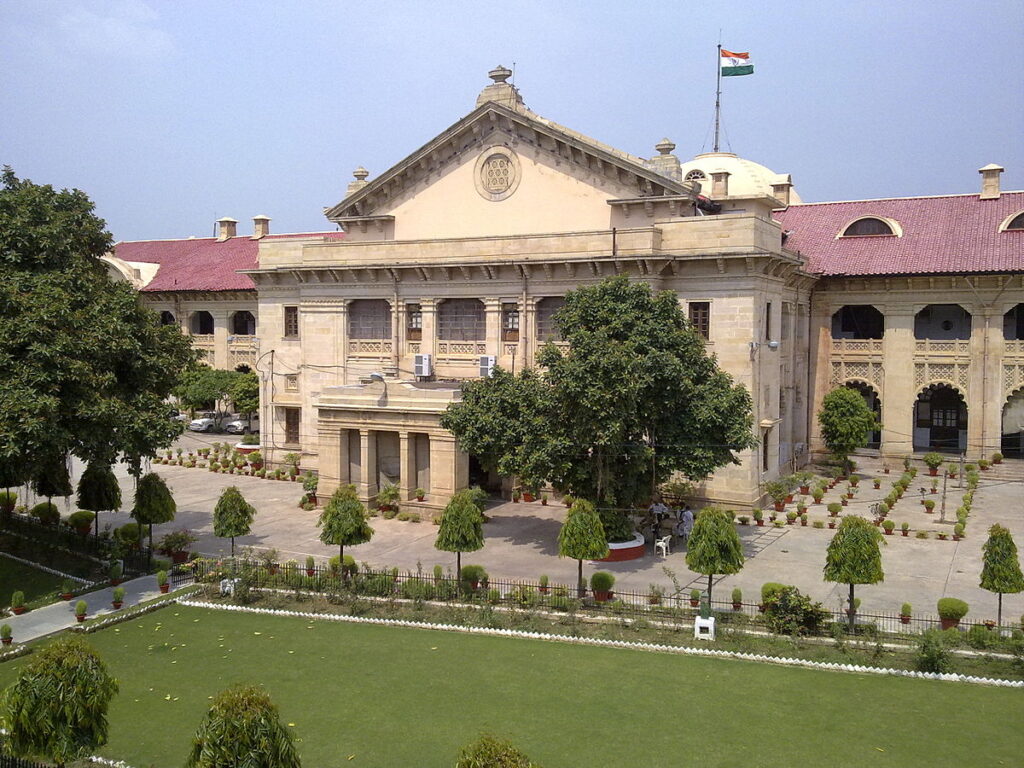The Allahabad High Court stated that an appeal under Section 260A of the Income Tax Act can only be upheld if there is a clear error in the tribunal’s decision.

The Allahabad High Court has stated that an appeal under Section 260A of the Income Tax Act can only proceed if there is a clear error in the Tribunal’s findings that raises a significant legal question. The court reviewed an appeal under this section where the revenue was disputing a decision made by the Income Tax Appellate Tribunal. Justices Shekhar B. Saraf and Vipin Chandra Dixit noted that they did not see any error in the contested order and found no grounds to accept the appeal, as there was no significant legal question at stake. An appeal under Section 260A can only be upheld if there is a clear error in the Tribunal’s findings that constitutes a substantial legal question.
The Appellant was represented by Advocate Manu Ghildyal, while Advocate Ambleshwar Pandey represented the Respondent. The case involved an assessment order completed by the Assessing Officer under Section 143(3) of the Act. Later, the Principal Commissioner of Income Tax used his authority under Section 263 to revise the Assessing Officer’s order, claiming it was harmful to revenue interests. This led to the assessment order being set aside and a new assessment being ordered. The Tribunal reviewed the case thoroughly, especially regarding a cash deposit of Rs.91 lakhs, and concluded that the Assessing Officer had conducted a proper inquiry before issuing the assessment order.
The Court noted that the Tribunal carefully reviewed the questionnaire from the Assessing Officer, looked into the inquiries made, and considered the responses from the assessee. It stated that only after this thorough examination did the Tribunal conclude that there was no basis to claim that the Assessing Officer had misrepresented facts or made false entries in the order sheet. The Tribunal also stated that the Principal Commissioner of Income Tax’s claim that the Assessing Officer failed to address cash deposits during the demonetization period was not supported by the evidence and was actually against the evidence available. Furthermore, the Tribunal determined that the two conditions needed to challenge the assessment order under Section 263 of the Act—being erroneous and harmful to revenue—were not met, as the Assessing Officer had conducted all necessary inquiries and verifications as required by law, the Court remarked.
The Court, while looking at its jurisdiction under section 260A of the Act, noted that it is well established that the Tribunal is the final authority on factual matters. It mentioned that the High Court can only intervene in a Tribunal’s order if there is a significant question of law, referencing the Supreme Court case Chunilal V. Mehta and Sons Ltd. v. Century Spg. and Mfg. Co. Ltd., which set the criteria for identifying a substantial question of law. In this appeal, the department only disputed the Tribunal’s findings on facts. Numerous Supreme Court rulings have determined that a substantial question of law does not arise regarding facts unless the factual finding is deemed perverse. A finding is considered perverse if it lacks evidence or cannot be reasonably reached by a sensible person. Decisions based on guesses, assumptions, or irrational conclusions must be overturned. Therefore, it is important to review how different Courts, including the Supreme Court, interpret ‘perversity,’ the Court noted.
The Court reviewed the Supreme Court’s decision in Arulvelu v. State, which defined ‘perversity,’ and the case of S.R. Tewari v. Union of India, which outlined the ‘attributes of perversity.’ It also considered the Delhi High Court’s ruling in CIT v. Ajay Kapoor, which further clarified what ‘perversity’ means. The Court stated, “Based on the judgments from the Supreme Court and High Courts mentioned, we believe that unless there is a clear case of perversity in the findings of fact, no significant legal question can arise. Additionally, for the Tribunal’s findings to be considered perverse, it must be shown that these findings significantly impact the rights of the assessee and could not have been reasonably reached based on the evidence presented. In this case, it is evident that the Tribunal thoroughly examined the facts before ruling in favor of the assessee.” As a result, the Appeal was granted.
Cause Title: Pr. City Bareilly UP vs. Dharam Singh (2024 AHC: 183417-DB)
Appearances:
Appellant: Advocate Manu Ghildyal
Respondent: Advocate Ambleshwar Pandey, Advocate Ramesh Kumar









